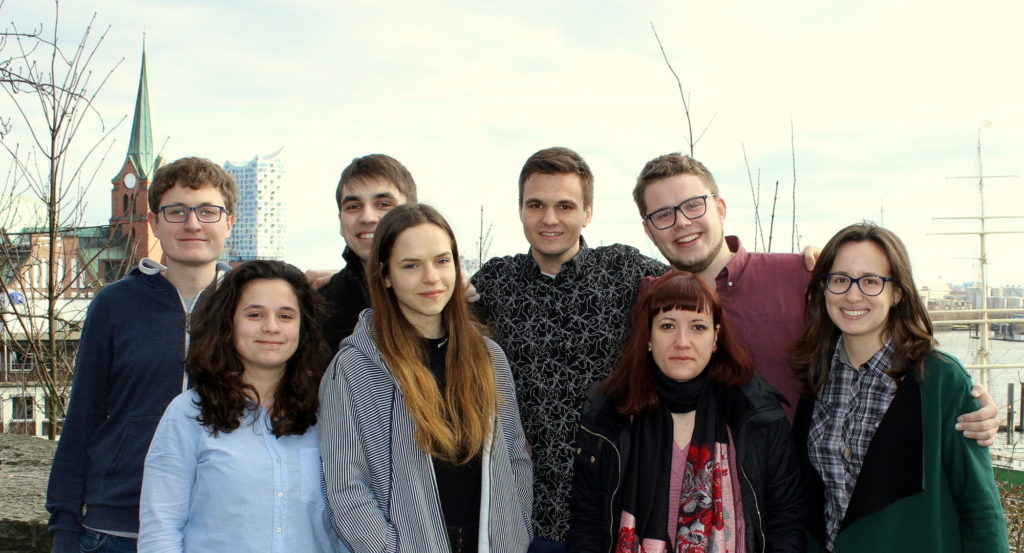For the 2018 Editors’ Workshop, the eight young Editors from all over Europe met at the end of February in Hamburg and received training by journalist Clemens Schöll in text editing, conducting interviews and producing high-quality blog posts. Together they build on the work of last year and discussed which topics and formats they want to further develop in the upcoming year on the History Campus Blog.

Editors’ Team 2018
“History exists very much in parallel to the present and not, as some would have you believe, in some distant corner of our existence”, Maria (22, Sweden) states during her visit in Hamburg for this year’s Editors’ Workshop, “It is particularly traceable in the construction of my identity.” Born in Russia and growing up in Russia, Hungary and Sweden, where she went to a German school, Maria is truly multi-national. Her diverse background is a direct result from her grandmother’s tumultuous life during and after World War II and her parents’ life during the times of the Soviet Union: “Their personal stories are so tightly woven into the fabric of history that it is impossible to tell one without the other.”
The History Campus contributes to the breaking up of national echo chambers and overcoming a monoculture of thinking. The multi-facetted perspective of young Europeans is truly at the heart of the History Campus, which assembles young voices from 30 different countries, and focuses on representing the diversity on current issues that are related to history and identity in Europe. This variety is also reflected in its authors and editors, who are students at school and university studying in various fields as well as young professionals. This is what fascinates Maria, who studies history and spatial theory at Huddersfield University, UK, the most: “We code texts through the lens of our own inclinations and experiences. The History Campus allows young people to narrate history, and this adds another facet to the multidimensional subject which history already is. This is why it’s so important that the History Campus represent these different voices.”
This year’s editors’ group consists of Maria (22, Sweden), Phillip (22, Germany), Jonas (19, Denmark) and Taras (26, Ukraine), who are joining Gregor (21, Germany), Camilla (24, Italy), Adelina (20, Bulgaria) and Milena (31, Serbia), who have already been part of the editing team in the past years.
“We consider the History Campus and the Editors’ Programme an important activity to foster international understanding among young Europeans”, says Katja Fausser, the head of the EUSTORY International Office and the project director of the History Campus. “The real-life History Camps and the digital History Campus are laboratories of international understanding and innovative civic education.”
Young people who are interested in publishing a post or want to get in touch with the editors can reach the editors group under info@historycampus.org. The editors are constantly looking for young authors with fresh perspectives on questions related to history and identity in Europe. Every year in autumn new members can join the editors’ group: Watch the History Campus Blog for the new call in November 2018. The exact dates for the call and more information will also be announced in the EUSTORY-Newsletter, subscribe here.
